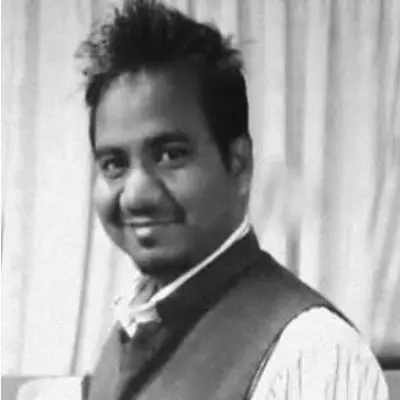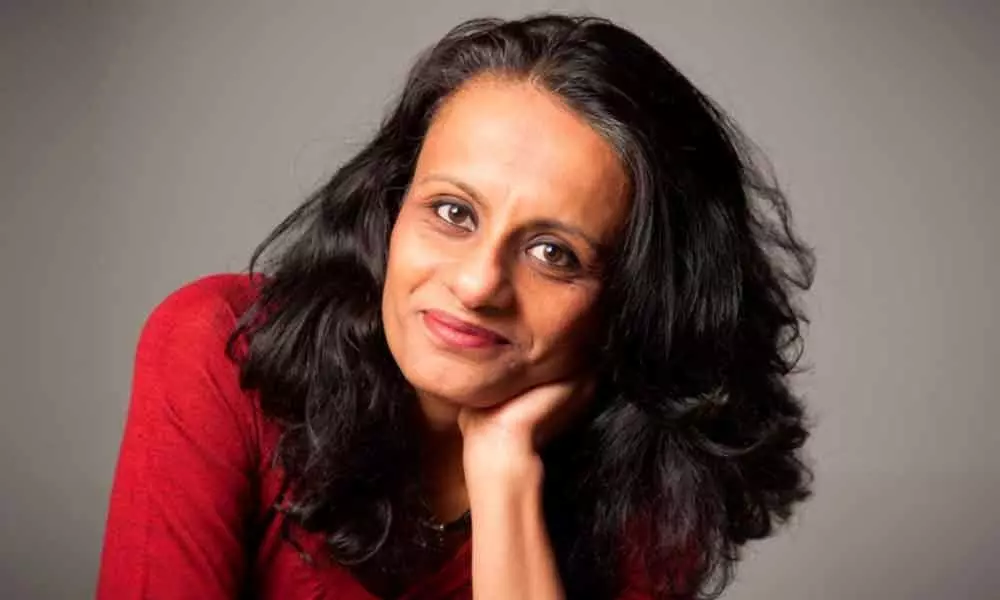Live
- Hisense India Partners with Reliance resQto Elevate After-Sales Service Nationwide
- RG Kar tragedy: CFSL reports suggest further probe to find whether rape & murder committed by only one or others involved
- PM Modi takes stock of 8 big infra projects worth Rs 1 lakh crore
- 98.5 pc land records digitised in rural areas, modernisation drive extended to 2026: Centre
- AP Sankranti Holidays 2025: Government Confirms Dates and Duration Amid Rumors
- I Must Have Been an Actor in My Past Life: Muralidhar Goud on His Passion for Cinema
- India's banking sector in robust health as NPAs fall and profits shoot up: Finance Ministry
- TG Indiramma Housing Scheme Delays: 8 Key Reasons Behind the Slow Progress of Indiramma House Survey
- Mangaluru Gears Up for Kambala
- Centre keen to promote traditional crop varieties for climate-resilient agriculture
Just In
Decoding how rebellious colonies changed: British attitudes to empire

Priyamvada Gopal is University Reader in Anglophone and Related Literatures in the Faculty of English and Fellow, Churchill College, University of Cambridge. She is the author of 'Literary Radicalism in India: Gender, Nation and the Transition to Independence' and 'The Indian English Novel: Nation, History and Narration'.
In her latest book 'Insurgent Empire: Anticolonial Resistance and British Dissent' Priyamvada examines a century of dissent on the question of empire and shows how British critics of Empire were influenced by rebellions and resistance in the colonies, from the West Indies and East Africa to Egypt and India.
Excerpts from an interview:
What were the ideas and theories behind your book?
There are two key ideas. One, that freedom is won by the colonised and not 'bestowed' by the coloniser. The second is that not everybody in Britain thought the British Empire was a good idea or a great thing. I bring the two strands together to argue that British criticism of empire and many British ideas about the need for colonial freedom was deeply influenced by freedom struggles in India, Africa and the West Indies.
A related idea is that all countries, whether India or Britain, have important dissident traditions, which need to be remembered and valued.
How were Britain's enslaved and colonial subjects active agents in their own liberation?
The famous abolitionist and former slave, Frederick Douglass said 'Power concedes nothing without a demand. It never did and never will.' My book shows how resistance and struggle happened throughout the British Empire for all its duration. I start in 1857 and end in the 1950s. Rebellion may not have immediately led to freedom and liberation, but freedom and liberation would never have happened without a struggle.
Is the British Empire still influencing metropolitan liberal and radical thinking in the 'Colonies'?
My argument in the book is the opposite: that the Colonies influenced liberal and radical thinking in Britain or 'the metropole'. I think that in many postcolonial contexts, including India, there is the danger of 'arrested decolonisation' whereby there has been a real failure to give up colonial-era legislations, like sedition laws or until recently, Section 377 and also a failure to truly re-organise governance and administration in fully democratic ways. We inherited a repressive state from the British Empire, and we continue to use the tools of repression that are not that different from how colonisers used it. Liberal and radical thinking in the colonies needs to be directed at how to undo the legacies of the coloniser rather than embracing them so wholeheartedly.
What kind of research went into writing this book?
A huge amount! I visited archives in Cambridge, where I live, as well as archives in London, Hull, Oxford, New York and Austin, Texas. I read widely around the histories of each individual context I look at –Egypt, India, West Indies, Kenya, Ethiopia—to give myself a good background on various rebellions and movements. I had to have a friend help me with translating materials from Arabic.
Do you have any unique or quirky writing habits?
I write in short bursts and have to lubricate the entire process with lots of cups of good desi tea! In the winter, I would wake up very early and write in the quiet darkness for two hours before anyone else was up.
You were at the centre of many high-profile events, including the Cambridge Strikes, a public argument with Mary Beard, and a Daily Mail hatchet-job by journalist Guy Adams. How do you handle when the spotlight is on you?
It's unnerving when you are the receiving end of abuse and media hatchet jobs, and the hate mail that follows is also tough. But at the end of the day, I am in a relatively privileged position when many activists across the world are facing much more direct state violence and are in actual conflicts zones. That puts things in perspective. Hatchet jobs are also evidence that you have hit a nerve.
You are known as 'The anti-racism campaigner', do you think racism and casteism are somewhat equivalent.
I don't at all consider myself an anti-racism campaigner which is another media label. I am an academic at the end of the day and I believe that scholars and intellectuals should speak up about things that matter. I am very glad you asked the question about race and caste. For me, the two systems are parallel and overlapping, and they work very much in the same lethal ways although, of course, caste is an even older and more deeply rooted phenomenon. Although it has a long way to go, the discussion about race, racism and white privilege in Britain and America is more advanced than the discussion about caste in India. 'Upper-caste' Indians do not spend a lot of time thinking about caste privilege or casteism—which is pervasive—and about how caste oppression can disenfranchise families and communities for generations. Like British people who complain about imaginary 'special privileges' for minorities, 'Savarna' Indians like to complain about imagined victimhood and so-called 'appeasement' of other groups. We must learn from struggles against racism—if racism towards us is not acceptable, then neither is casteism. This is not just a question of personal attitudes but deeply rooted social structures.
Indians are more often than not passively casteist... and when they go to the West and if they undergo the brutal and/or passive racism; they try to raise voice against it. However, when they come back to India, they just turn a blind eye against blatant casteism, a deep-rooted social evil, which is still prevalent in the country. What are your comments about this phenomenon?
It is hypocritical to denounce racism but not do anything about caste injustices. If you are (rightly) outraged about racism, then it is your obligation to examine your caste position and think hard about the brutalities that system also inflicts on other people. You can't just say that you want equal treatment and no discrimination without thinking about how you too might be participating in inequality and discrimination and profiting from caste hierarchies. The same applies to discrimination against and oppression of religious minorities in India.

© 2024 Hyderabad Media House Limited/The Hans India. All rights reserved. Powered by hocalwire.com








